"Cozy" isn't the word I'd usually reach for when discussing the hot and sweaty labour that comes with running a medieval forge. But even in its early access form, Blacksmith Master's unlikely combination of hard metalwork and decorative drapes brings a pleasantly relaxing vibe to all that smelting and hammering.
My little workshop's comfortably nestled inside an established town, and bustles with activity from early dawn until the warm street lights come on at dusk. People stroll around the nearby streets, and hopefully walk into my finely-decorated shop for a moment to peruse my wares as they pass by. One blacksmith saws wood while another assembles a sickle at a workbench. An assistant might be hauling freshly-mined ore into my workshop while another lugs a sack of goods over to a merchant rocking on their heels as they wait by their cart, and a few workers might even be seen resting on benches in the rare moments when there's nothing for them to do.
Being able to keep track of a dozen different moving parts just by looking over the workshop floor is more than helpful, it makes it easy to believe my business is one part of a wider community. I'm not clearing Task #4 with Worker #16 or making a bunch of gauges fill up for no other reason than because I'm supposed to, I'm trading with local merchants and supplying the townsfolk with well-crafted goods.
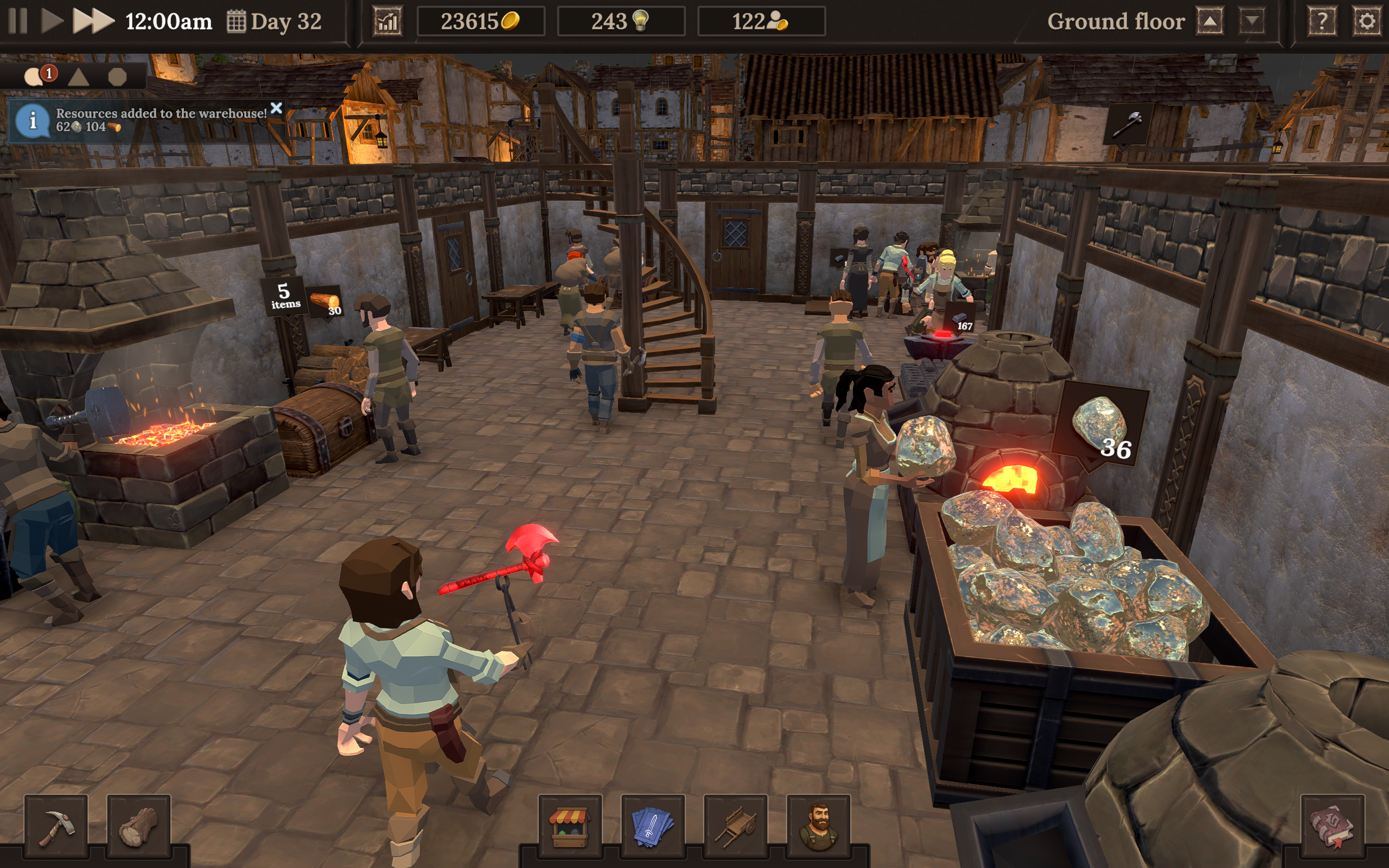
Dressed for success
Building my business upwards, outwards, and even downwards into the basement is a breeze. Clean snap-to-grid behaviour combined with a clear UI showing exactly which corner of a shelf or staircase accidentally overlaps something else makes placing everything from essential anvils to pretty pot plants simple, even when working across multiple floors in the middle of a busy day.
And if (OK, when) I mess up, rearranging and rotating the existing furniture is as simple as dragging it about while the shop menu's open, allowing me to quickly correct my routinely appalling layout choices before they become a problem—or just dress up the shop I opened to sell my goods with another tasteful wall basket for fun.
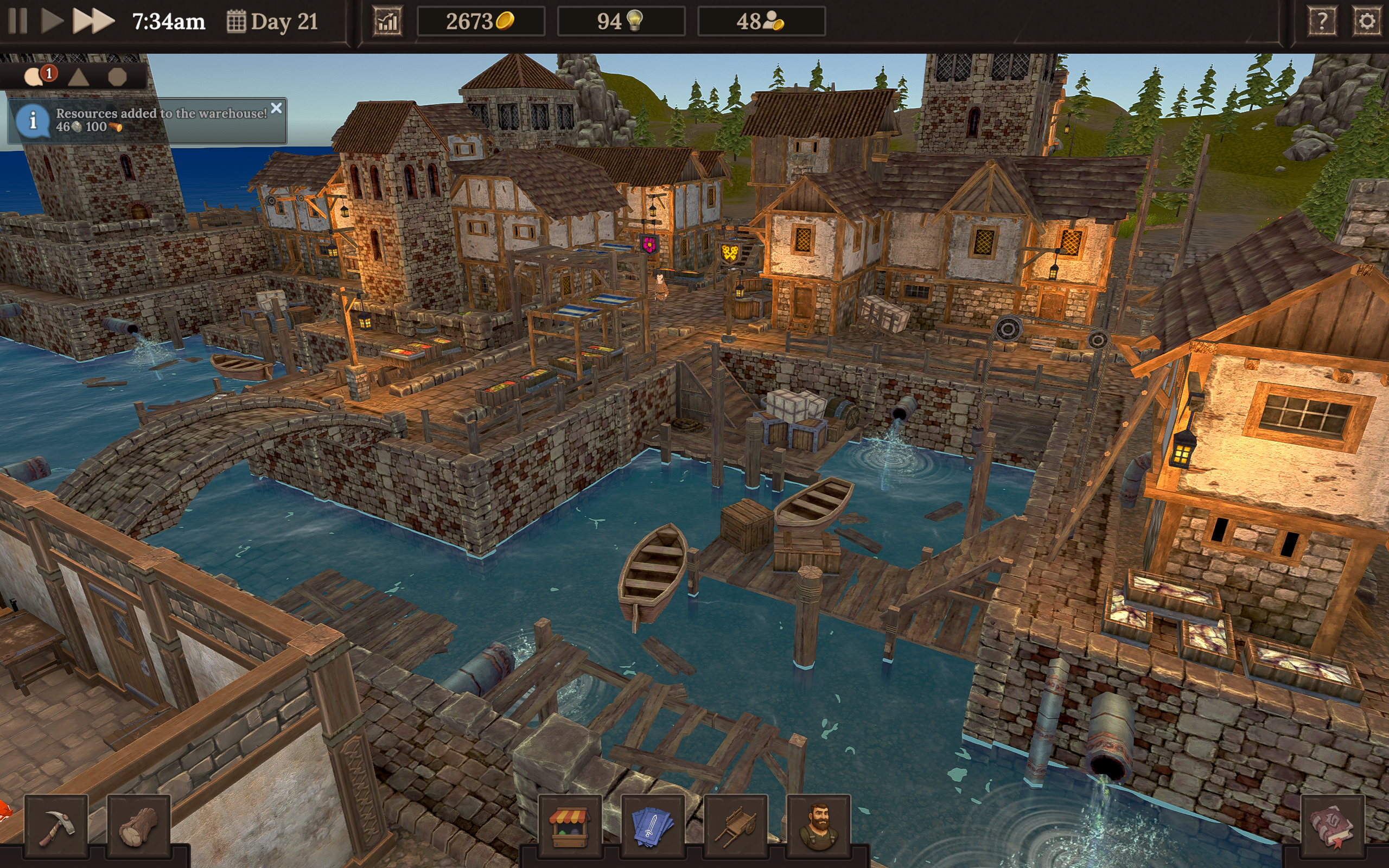
Before long I've got a functional, if not efficient, workshop filled with its own stories and amusing quirks. I made the effort to give my designers a quiet area in a corner of the upper floor, and paid for a torch just because I thought my lumberjack's camp looked a bit sparse and unfriendly without it. Watching another harried assistant rush about all over the place because of my frankly terrible item chest placement makes me smile.
Until I choose to navigate my layouts myself. The game allows me to take over any of my small army's worth of highly customisable blacksmiths at any time and experience the entire crafting process first-hand; a chain of actions that might involve picking up a log and taking it to a table before sawing it into shape and finally dropping it off in the order cart. The minigames that pop up along the way—a small selection of extremely simple QTE-like things—aren't in any danger of challenging any PC gamer capable of the strenuous task of pushing a single button when they're told to, but the relaxed nature of it all only felt in keeping with the rest of the game's easygoing attitude.
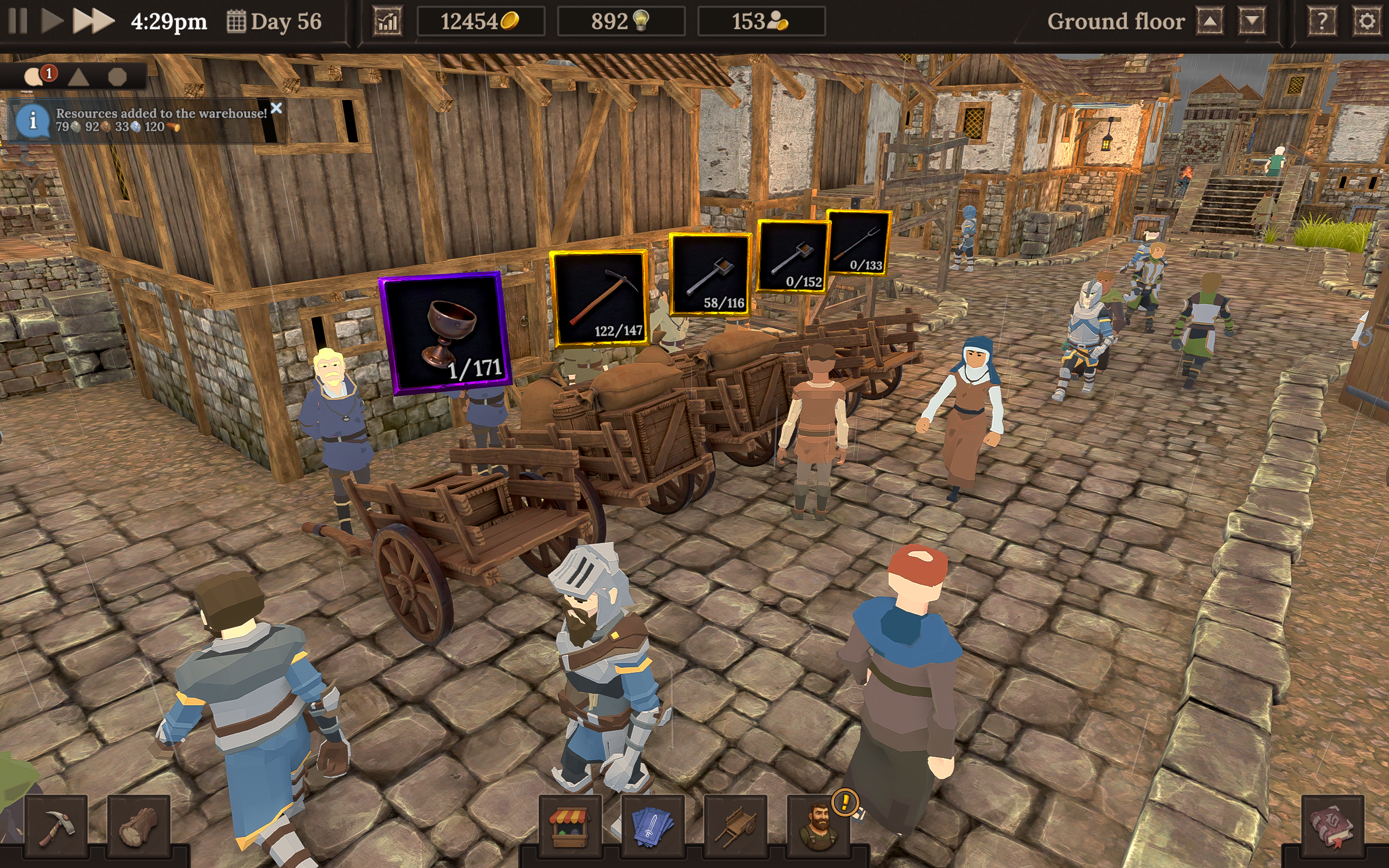
Clear cut
Most of the time I'm assigning individual workers, each possessing their own combination of stats and unique traits, sensible tasks from an easily accessed short list of jobs and letting them get on with it. Maybe one of them's a talented carpenter, so I'll make sure they always prioritise wood-related jobs. I'll ask others to create the most expensive items first, craft exclusively for my own shop's shelves, or focus on fulfilling merchant orders. I have to make meaningful decisions and keep an eye on things, but I'm never drowned under a thousand different stats spread across a dozen windows, and my burgeoning blacksmith business won't fall apart if I'm not constantly breathing down my worker's necks.
New skills, abilities, and even areas—that fresh wood and raw ore has to come from somewhere—are introduced at a gentle pace; an interesting new problem to work into my existing and ever-expanding routine, rather than another damned chore piled on top of an increasingly precarious house of cards.
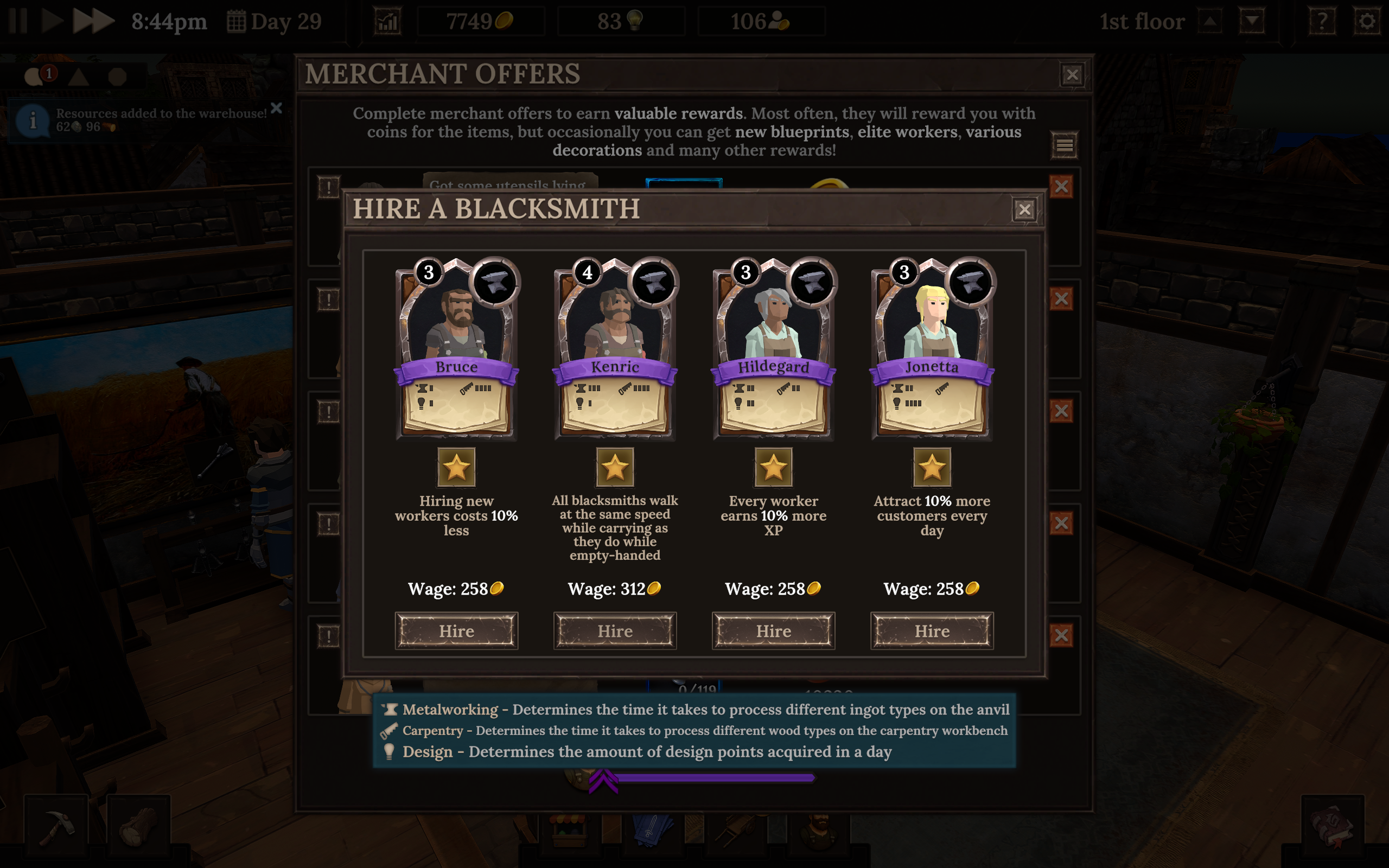
I never seem to be more than a quick click away from another friendly tooltip explaining whatever I'm currently looking at, and little eye-catching prompts ensure I can see when an order's ready to be turned in, a blacksmith can level up, or a new design's made itself available. It's practical help that makes it easier to quickly keep tabs on an ever-increasing number of moving parts, while still feeling warm and welcoming. The game wants to help. We're a team, and we're going to make this blacksmith's work—together.
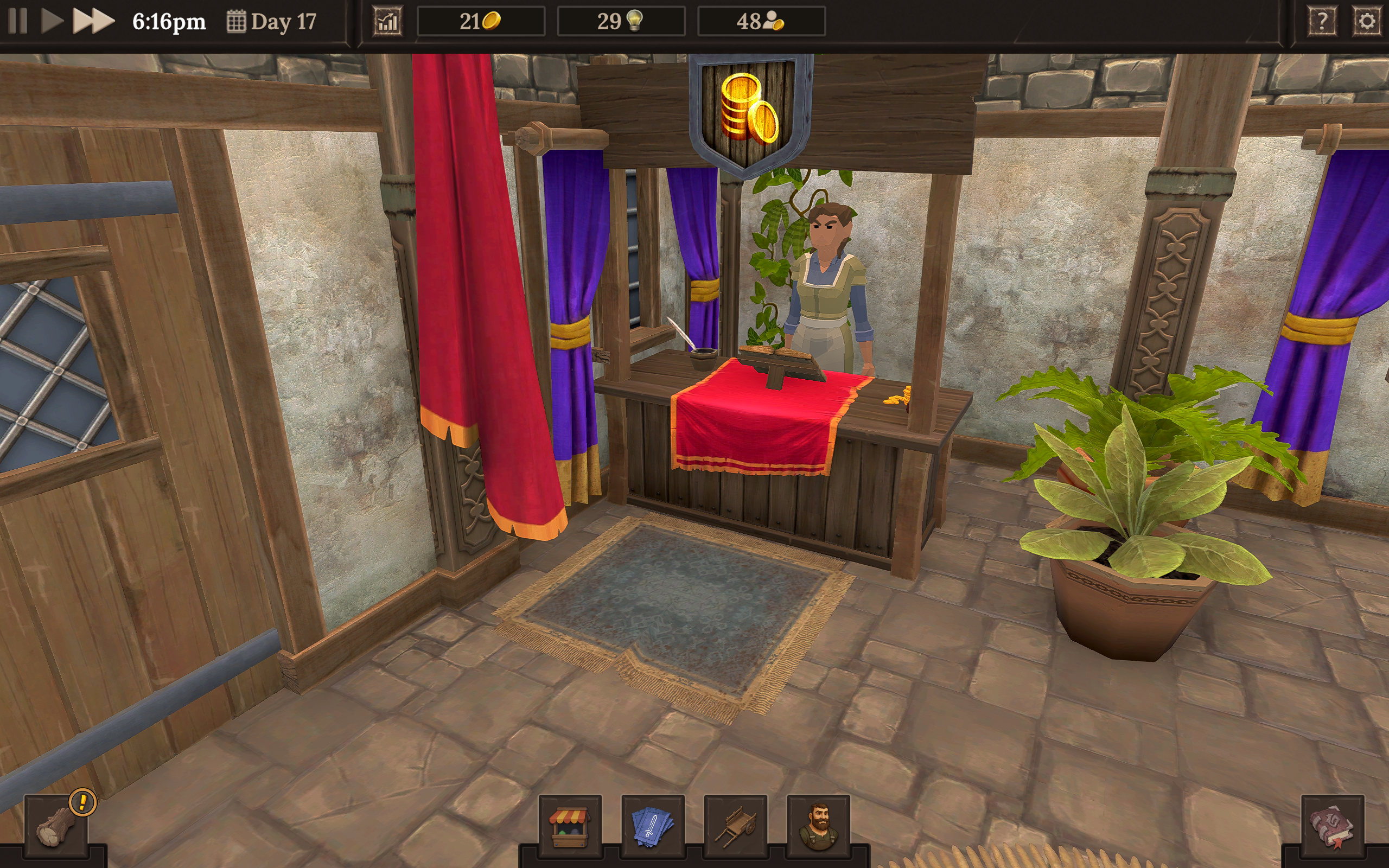
It doesn't feel like busywork, not even when dozens of workers are running all over the place, trying to fulfil triple-digit orders just to keep the place going. I can see clearly how all of these systems interconnect and rely on each other. I know there's a point to every last little thing that's going on. And because I can get in so close and watch these lovely lo-poly people dip hot iron into cold water to take a rest in the mines, it always feels like a very personal sort of success. My team is working hard, together, and coming out on top.
There's still some work to be done here before it's all buffed to a bright finish—I'd like to see some need for specialism, such as a reason to organise my shop space so the pots and pans customers don't rub elbows with the bow and blade customers—but even in its early access release, this is pretty hot stuff.







.jpg.webp?itok=1zl_MpKg)





 Bengali (Bangladesh) ·
Bengali (Bangladesh) ·  English (United States) ·
English (United States) ·